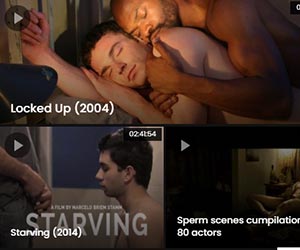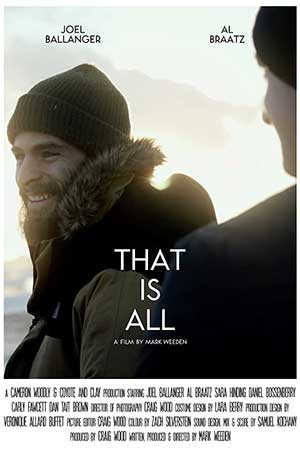Home » Drama » Lonely Country (2023): Unveiling Rural Queerness by James Perry
James Perry’s Lonely Country offers a much-needed exploration of rural queerness, a topic rarely explored in mainstream media. The film brings visibility to LGBTQ+ experiences in rural areas, particularly in eras when such identities were concealed or erased by societal norms. Perry’s choice to set the film in a small, close-knit community emphasizes the unique challenges and complexities of queer life in rural spaces. Instead of following the typical storyline of queer characters escaping to urban environments for liberation, the protagonist, Eugene, chooses to remain in his hometown, navigating life with discretion.
The film thrives on its quiet atmosphere, one of its most profound strengths. Perry uses silence to immerse the audience in the isolation and internal conflict that defines Eugene’s life. Long pauses, subtle facial expressions, and the slow pace of rural living all contribute to Eugene’s personal struggle. The cinematography by Cece Chan further enhances this tone, employing the rural landscape and muted lighting to reflect the emotional depth of Eugene’s turmoil. The film’s gradual tension, especially in the dialogue between Eugene and Jack, builds towards a pivotal moment when Eugene finally acts on his suppressed desires. Jack’s violent reaction makes this scene all the more heartbreaking, highlighting the fear that has governed Eugene’s life.
Antoine Guimbal delivers a powerful, understated performance as Eugene, perfectly capturing the repression and loneliness of a man forced to hide his true self. His portrayal evokes empathy, allowing the audience to feel his isolation in a world that refuses to accept him. Euan Lathrop, playing Jack, brings a youthful vibrance to the screen, embodying both the potential for connection and the threat to Eugene’s precarious security. Lathrop skillfully navigates the balance between charm and menace, deepening the tension that defines their interactions.
What sets Lonely Country apart from many other LGBTQ+ films is its firm rooting in rural life. In contrast to the popular narrative of queer individuals fleeing their small towns in search of acceptance, Perry centers his story on characters who stay. This decision reflects a different kind of resilience, honoring those who remained in their rural communities, quietly living their truths despite societal disapproval. Perry’s film sheds light on a less-explored aspect of queer history—one where individuals find ways to exist within the boundaries of their surroundings, even if that means living on the margins.
Perry’s directorial vision is encapsulated in his poignant note: “Queerness has always existed, and continues to exist, within rural spaces.” His intent to honor the queer individuals who never left their rural communities, even when they could not openly express their identities, challenges the traditional narrative of queer repression and escape. Instead, Lonely Country offers a nuanced perspective, one that acknowledges the quiet strength of those who remained. By doing so, the film expands the conversation around rural queerness, moving beyond the simplistic idea of leaving for liberation and toward a recognition of those who found ways to live their truth within the confines of small-town life.























